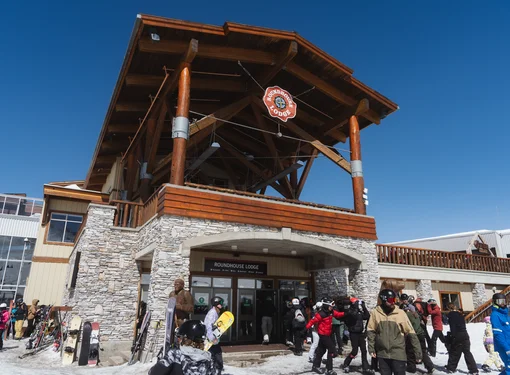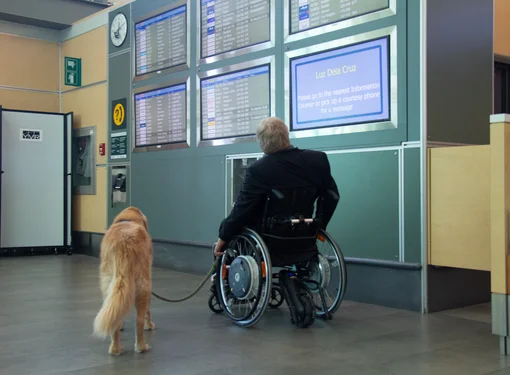Below the Surface: Mental Health and Disability
Mike Shoreman will never forget November 2018. It was the month the script flipped on his life. The Canadian paddle boarding coach went from being fit and athletic to barely being able to walk a few feet from the kitchen to the bathroom in his home.
Mike had developed Ramsay Hunt syndrome. The chronic neurological condition is triggered by the shingles virus, affecting the facial nerve near one his ears. It significantly impacted Mike’s vision, mobility, speech, and sight and he experienced extreme exhaustion, chronic vertigo, and hearing loss in one ear. Ramsay Hunt can wreak havoc on the inner ear where the organs of balance, the vestibular system, are found. When the vestibular system is disrupted, it can send contradictory messages to the brain which can result in debilitating bouts of vertigo.
Vertigo is not simply mild dizziness. Rather it feels like a never-ending merry-go-round ride. Those who have experienced it liken it to a sensation of the world careening out of control with nothing firmly anchored. Vertigo is unrelenting, persisting even when lying flat on one’s back. It’s important to emphasize how terrifying it can be as it is integral to Mike’s story, highlighting his sheer resilience.
Four years after his diagnosis, Mike made history on August 20, 2022, as the first person with physical disabilities to paddle board across all five Great Lakes. You can read more about his accomplishment on our blog.
Mike now has coping strategies to navigate life with Ramsey Hunt syndrome, but it was a journey that required time and a pivotal visit to a mental health treatment facility when he reached the breaking point. Like countless others who face disability because of illness or accident, medical professionals had primarily been addressing Mike’s physical symptoms with little regard for his mental well-being.
“As a result, my mental health spiraled out of control,” Mike recalled. “I didn’t seek professional help with my mental health until it was almost too late. I went six months feeling very alone, isolated, and shut off from the world.”

When Hope Breaks Through
Experiencing a disability at some stage in life is a common occurrence. In Canada, 1 in 4 people has a disability, and this statistic does not differentiate between those who are born with a disability and those who acquire one. Like perceptions about death, many able-bodied individuals tend to assume that disability is something that might occur late in life. Consequently, acquiring a disability can have a profoundly transformative impact.
“The more I’ve read about adults with disabilities experiencing frequent mental distress, almost five times as often as adults without disabilities, the more I think it’s incredible that we don’t talk about these additional challenges,” Mike said. “A gap exists because you’re doing everything to adjust to your new normal. Speaking from my own experience, I lost all my independence, social life, my ability to earn an income in addition to dealing with hearing loss and vertigo – you’re dealing with all these challenges all at once. And then there’s the mental challenges that come with that, but there’s such a huge stigma that’s attached to mental health, so it often is ignored.”
While the taboo on mental health has lifted in the past decade, it still has a way to go before the conversation becomes completely normalized and accessible support is readily available for all those who need it, Mike added. He feels so strongly about advocating for mental health support that it has become his mission to raise money and awareness. Mike’s film, ‘When Hope Breaks Through’, documents his five crossings of the Great Lakes, the mental health crisis, and our relationships with our own mental health, is making the national film festival rounds.

Finding a Purpose
Another aspect to acquiring disabilities is that Mike’s sense of confidence was completely erased. The beginning of the turning point was when some friends asked him if he wanted to sit on a paddle board. Even if doing so for a single minute put him on the couch to recover for a day and a half. Slowly, he built up his strength and confidence.
“What I learned from the dark experience of going to that mental health treatment facility was that I could do really hard, scary things,” he said. “That gave me confidence – confidence that had been shattered. I started sitting on the paddleboard for minute, then it was five minutes, then seven minutes and a few months later, I stood up for the first time for a few minutes.”
Being a part of the conversation about mental health has become Mike’s purpose. He hopes that mental health resources become more widely available and accessible to people of all ages, including in schools across Canada.
“Mental health affects all of us. 1 in 3 Canadians will experience mental health challenges in their lifetime. When you look at the percentage of Canadians who live with disabilities, those percentages are just very, very high,” added Mike. “Through my experiences, it just hit me that I know how people feel. I don’t want anybody, particularly young people to ever feel this way.”
Whether spanning the vast expanse of the Great Lakes or navigating the stubborn terrain of societal perceptions, Mike is proof that one person can indeed make a world of difference to so many others.
Canada is launching its nationwide crisis hotline, 988, on November 30, 2023, providing a free texting or calling service for Canadians struggling with mental health challenges. The 988 suicide crisis line will be available to all Canadians in English and French, 24 hours a day and seven days a week. It will offer trauma-informed and culturally appropriate services by trained crisis responders.
Children and young adults in Canada in need of mental health support and crisis services can also contact Kids Help Phone, or text CONNECT to 686868 from anywhere in Canada at any time.






